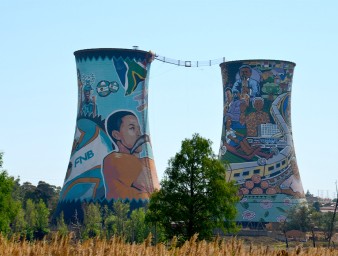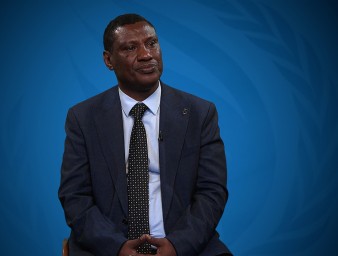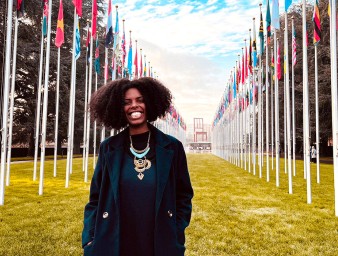Protect the rights of people with albinism
04 December 2014

People with albinism in Tanzania are fighting for their survival. They not only face discrimination and outright rejection by families and society, but endure extreme violence as they are hunted down and their body parts used in witchcraft rituals. Locally, body parts of persons with albinism are said to fetch thousands of dollars.
Mwigulu Matanange, has been forced to live away from his family at the tender age of ten. He recalled how he was attacked near his home village in Rukwa District of Western Tanzania, shortly after leaving school with his friend.
“My friend, also called Mwigulu, and I were walking in the fields herding cows. We saw two men walking fast. I told my friend let us walk past them quickly. But they stopped us, seeking our help to find their lost dark brown cow,” he said. “Shortly after, they began throwing stones at my friend. Then one of the men removed his red hat and covered my face. I could not see. That is when he cut my arm off and ran.”
But Mwigulu has been given a second chance in life. Under the Same Sun (UTSS), a non-governmental organization is sponsoring Mwigulu’s education. He is now enrolled in a private boarding school in the outskirts of the capital city Dar es Salaam.
Between the year 2000 and 2014, the country has seen a stream of attacks with a hundred and fifty-one victims recorded.
“After the outbreak of the killing of the people with albinism the regional commissioner decided to designate a place for safe keeping the people with albinism, that is Buhangija, that is where we are keeping the children with albinism, who are especially in fear of being endangered,” said Boniface Chambi the Mwanza District Commissioner Secretary.
The UN Human Rights Office has welcome the measures taken by the Tanzanian authorities to combat these crimes, but it has voiced concern about the institutionalization and segregation of children with albinism hosted in the centres.
Visiting the Centre the Human Rights Advisor of the United Nations Human Rights Office, Chitralekha Massey decried the children’s living conditions. “They are growing up without any interaction, any linkages with their families, with their cultural set up.”
“In complete absence of this, it is like these children are being considered individuals of institutionalisation as soon as they are born,” said Massey.
The Tanzanian government has taken some measures to combat the problem such as the public condemnation of attacks and killings and the appointment of a person with albinism as Member of Parliament and Cabinet.
Similarly, the political will has been exhibited - with judicial authorities investigating recent cases of attacks in collaboration with various partners, such as civil society and the Commission of Human Rights and Good Governance.
However, the UN Human Rights Office has calls on Tanzanian authorities to further reinforce the country’s legal system in responding to these crimes.
Alicia Londono, the UN Human Rights Office expert on people with albinism rights expressed concern that people living with Albinism were also unable to immediately access justice for the crimes committed against them as witnesses were often unwilling to testify for fear of victimization.
“We urge the authorities to take urgent concrete measures to protect people with albinism and to take a more proactive approach to education to combat the stigma attached to albinism,” Londono said.
The UN Human Rights Office has received information of more than 200 ritual attacks since 2000 in 15 African states. Due to the secretiveness of the practice, it is believed that many attacks remain undocumented and unreported.
In the meantime, survivors like Mwigulu live in fear of repeat attacks and are still seeking justice.
In 2013, the UN Human Rights Council adopted two resolutions calling on states to take all measures necessary to protect people with albinism and to ensure accountability through the conduct of impartial, speedy and effective investigations into crimes against them.
4 December 2014




